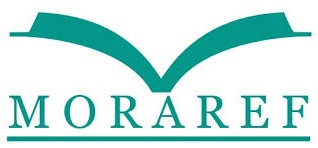Bothma, C.F.C., & Roodt, G.(2013). The validation of the turnover intention scale. SA Journal of Human Resource Management/, 11(1), 507, 1-12 https://doi.org/10.4102/sajhrm.v11i1.507
Brause, C.(2021) Team communication. The Designer ‘s Field Guide to Collaboration, March, 148-179, https://doi.org/10.4324/97813157534584-11
Chen B, Wang L, Li B and Liu W (2022). Work stress, mental health, and employee performance. Frontiers I Psychology, 13:1006580 https://doi.org/10.3389/fpsyg.2022.1006580
Chen, X., Ran, L., Zhang, Y., Yang, J., Yao, H., & Zhao, S. (2019). Moderating role of job satisfaction on turnover intention and burnout among workers in primary health care institutions: A cross-sectional study. BMC Public Health, 19, 1-10.
https://doi.org/10.1186/s12889-019-7894-7
Chen, Z. X. & Aryee, S.(2007). Delegation and employee work outcomes: An examination of the cultural context of mediating processes in China. Academy of Management Journal ,50(1),226-238 https://doi.org/10.5465/AMJ.2007.24162389
Chen, L., & Chen, L. (2023). To Stay or to Leave: The Turnover Intentions of International Academics at Japanese Universities. Journal of Studies in International Education, 28(3), 376–397. https://doi.org/10.1177/10283153231164842
Cilicaran, B.S., & San-Joe, D. B.S.(2025). Predictors of turnover intention among non-academic staff personnel in a Catholic University in Western Vsayas, Philippines. International Journal of Multidisciplinary Research & Growth Evaluation, 6(1),1297-1304 https://doi.org/10.54660/IJMRGE.2024.5.6.1297-1304
Dhar, U. & Dhar, S.(2011). Team effectiveness scale . Agra: National Psychological Corporation , India.
Gautam, D.G.D., & Gautam, P. K.(2022). Occupational stress for employee turnover intention: Mediation effect of service climate and emotion regulation. Asian-Pacific Journal of Business Administration, 1-24 https://doi.org/10.1108/APJBA-02-2021-0056
Gunasekra, K. A.& Perera, B. A. K. S.(2023). Defining occupational stress: A systematic literature review. FARU Journal , 10(1), 104-111 https://doi.org/10.4038/faruj.V10i1.194
Hadi-Cahyadi, Andrias, D., Masman, R. R., Estralita Trisnawati, & Wijaya, H. (2024). Investigating the determinants of turnover intention among the big 4 public accounting firms in Indonesia. International Journal of Innovative Research and Scientific Studies, 7(4), 1423–1434. https://doi.org/10.53894/ijirss.v7i4.3441
Jeon, M. K., Yoon, H., & Yang, Y. (2022). Emotional dissonance, job stress, and intrinsic motivation of married women working in call centres: The Roles of work overload and work-family conflict. Administrative Sciences, 12(1) https://doi.org/10.3390/admsci12010027
Jiang, L. and Lavaysse, L.M. (2018) Cognitive and affective job insecurity: A meta-analysis and a primary study. Journal of Management, 44, 2307-2342.
https://doi.org/10.1177/0149206318773853
Kachi, Y., Inoue, A., Eguchi, H., Kawakami, N., Shimazu, A., Tsutsumi, A. (2020). Occupational stress and the risk of turnover: A large prospective cohort study of employees in Japan BMC public health 2020; 20(1):e174 https://doi.org/10.1186/s12889-020-8289-5
Maertz, C.P., & Campion, M. A. (2004). Profiles in quitting: Integrating process and content turnover theory. Academy of Management Journal, 47(4),566-582. https://doi.org/10.2307/20159602
Maertz, C.P., Keith, M.G., Raghuram, S., Porter, C.M., & Dalton, G. L.(2023).Advancing theory and practice on managing dysfunctional turnover: Developing an improved measure of turnover reasons. Group & Organization Management, 48(5), 1387-1429 https://doi.org/10.1177/10596011211065880
Nkwatsibwe, I., Rukundo, A., & Balimuttajjo, S. (2025). Job stress, job satisfaction, self-efficacy and turnover intentions across socio-demographic characteristics of government secondary school teachers in Greater Mbarara. American Journal of Education & Practice, 9(1), 32-66 https://doi.org/10.47672/ajep.2630
Putri, A. R., Renwari, J. M. J., (2023). The effect of leadership and teamwork on employee turnover and team performance. Human Capital & Organizations, 1(1), 46-55 https://doi.org/ 10.58777/hco.v1i1.121
Salama, W., Abdou, A.H., Mohamed, S.A., & Shehata, H. S.(2022). Impact of work stress and job burnout on turnover intentions among hotel employees. International Journal of Environmental Research & Public Health, 19(9724).https://doi.org/10.3390/ijerph19159724
Singh, D. ., Tanwar, R. ., Gupta, D., Verma, R. ., & Chaudhary, D. . (2025). Decoding Employee Exit: A Systematic Review of Turnover Intention and Its Determinants. Journal of Neonatal Surgery, 14(26S), 736–750. Retrieved from https://www.jneonatalsurg.com/index.php/jns/article/view/6351
Srivastava, A.K. & Singh, A.P.(2004). Manual of the occupational stress index. Varanasi: Department of Psychology, Banaras University.
Thaiba, D. & Suryab, R. L.(2019). Influence of job involvement on turnover: Organizational commitment as mediator. International Journal of Innovation, Creativity & Change, 6(8). 315-333 www.ijicc.net
 ()
() 








.png)









